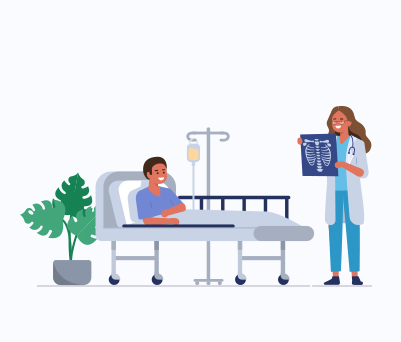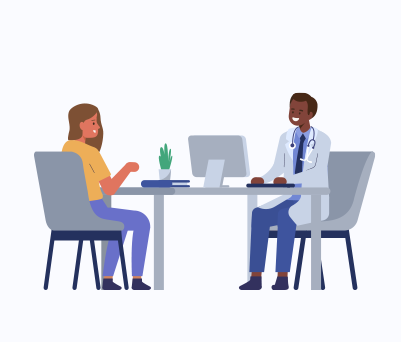Is that knot in your lower back limiting your ability to get around? Perhaps you have a tight area in the shoulder or neck that really bothers you. The pain may or may not be severe, but it seems to occur whenever you are moving. In some cases, this type of pain can also occur when you are just laying down to rest. What can you do about it? This type of pain is called trigger point pain. It occurs in a specific area and often creates a muscle that’s tight. When you come in to see our team, you’ll learn about trigger point injections. This treatment option could help to relieve your pain and improve your mobility.
Do You Really Need Treatment for Trigger Point Pain?
If you have mild pain that comes and goes, and it does not limit your everyday movements, it may seem like getting trigger point treatment isn’t necessary. It is still important to come in to see our New York City doctors to discuss why you have this pain and if it would worsen over time. For many, it does. When you come in to see our team, we’ll talk about any benefit you may see from trigger point injections. However, if your pain is constant or frequent or it is more than just a bother, come in to see our team.
Trigger point injections are a type of minimally invasive treatment that helps to provide relief to many people who suffer from trigger point pain in the back, shoulders, or neck. It can help you, too. Schedule a consultation with our NYC doctors for trigger point injections and learn more about how effective it can be to your pain.
A trigger point is a tight band of muscle that causes pain during activity and/or at rest. Tightness is sometimes described as a knot in the muscle, which often can be felt as a lump beneath the skin. Symptoms of a trigger point may include:
- Local tenderness (i.e., neck, shoulder, low back)
- Local muscle twitching
- Reduced range of motion
- One or more areas of muscle tightness
- Trigger points can affect any muscle in the body.
- Referred pain. For example, if you have a trigger point in your neck, pain may be referred to your upper shoulder(s) or arms.
Common causes
The following list is not complete, but will give you an idea of how a muscular trigger point may develop.
- Repetitive stress/movement of a particular muscle or group of muscles
- Cradling a telephone receiver between your chin and shoulder
- Bending forward for a prolonged period of time (muscle stress)
- Poor back support while seated.
- Lifting something that is too heavy and/or poor body mechanics.
Trigger point injection
At Rehabilitation Medicine Center of New York, our staff will insert a small needle into the trigger point and inject a local anesthetic. The trigger point injection may include a corticosteroid (powerful anti-inflammatory drug). The injection only takes a few minutes, and more than one trigger point can be treated at the same time.
Your treatment plan may include physical therapy and guidance about how to prevent future trigger points from developing.













